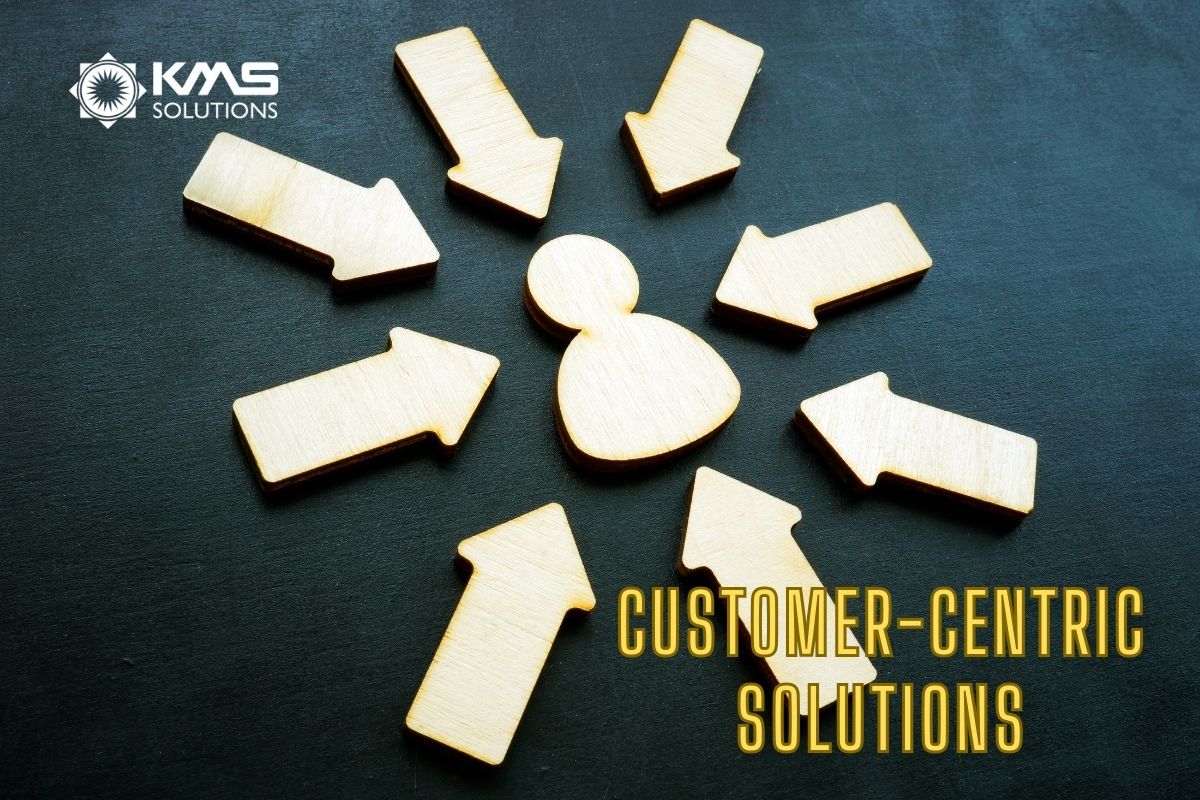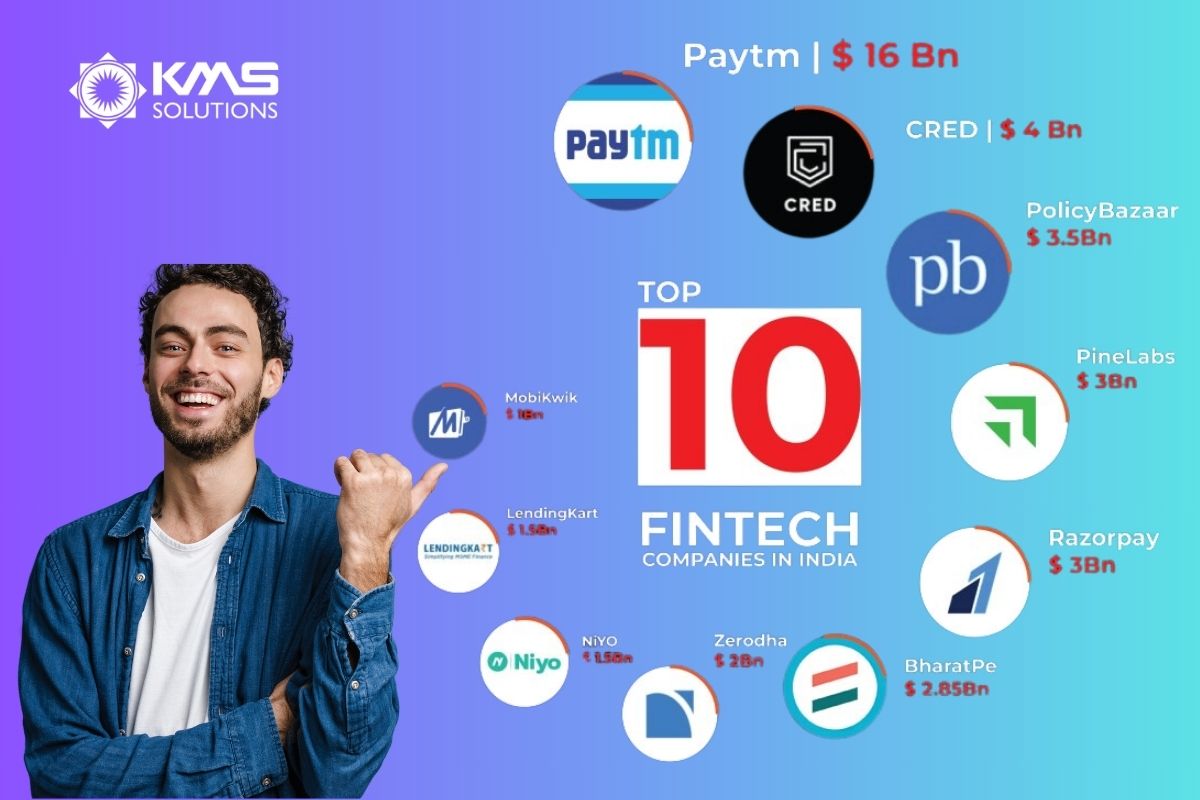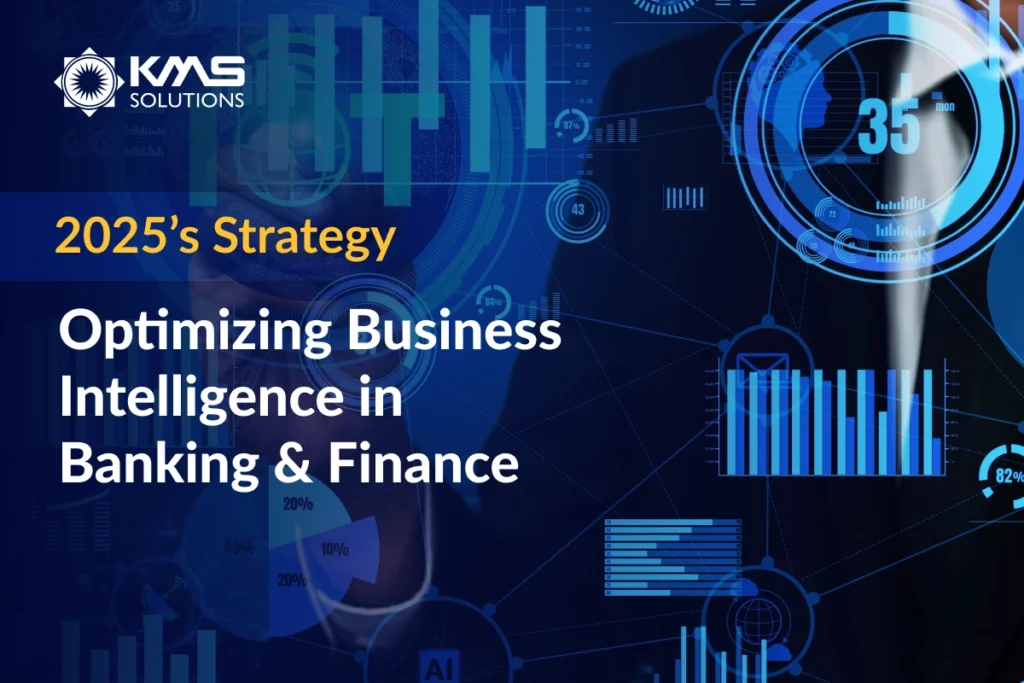Traditional financial institutions are steadily losing ground to innovative and technologically advanced startups, positioning fintech as an exciting and promising area for exploration.
Fintech is revolutionizing the financial industry by leveraging technology to offer faster, more efficient, and accessible financial services. Starting your own fintech company can be an exciting opportunity to create impactful solutions that address key financial challenges.
However, success in the FinTech landscape needs more than just a groundbreaking idea – it demands a well-thought-out strategy, deep industry expertise, and a robust technological framework. This guide provides a clear roadmap on how to build a successful fintech company from the ground up.
1. What Defines a Fintech Company?
A fintech company uses technology to enhance or create new financial services. These businesses range from mobile payment apps to neobanks, offering solutions that simplify financial transactions, improve efficiency, and enhance customer experiences.
The impact of fintech is substantial, reshaping how consumers and businesses handle finances and creating opportunities for innovation and financial inclusion.
Fintech goes beyond providing convenient and accessible digital payment solutions. Innovation-driven companies enhance financial data protection and customer security through advanced fraud prevention measures. These efforts help financial institutions build trust with their users. As the fintech sector continues to grow, we can expect the introduction of even more impressive features, including eco-friendly solutions.

2. Benefits of Launching a Fintech Startup
Launching a fintech startup presents an incredible opportunity to disrupt traditional financial services and deliver innovative solutions that meet the growing demand for digital-first experiences. The fintech industry is evolving rapidly, and there is immense potential for growth as more consumers and businesses move towards digital transactions and services. Here are some reasons why launching a fintech startup today could be highly rewarding:
- Growing Market Opportunity: The fintech industry is experiencing significant growth, with the global market projected to reach USD 340.10 billion in 2024 and USD 1,152.06 billion by 2032, exhibiting a CAGR of 16.5% during the forecast period. There are more consumers opting for digital financial services, especially in payments, lending, and investment management.
- Innovation Potential: Fintech startups are at the forefront of innovation, using cutting-edge technologies like blockchain, artificial intelligence, and machine learning to create new financial products.
- Customer-Centric Solutions: Traditional financial institutions often struggle with user experience. Fintechs have the chance to create user-friendly solutions that are more in tune with modern customer needs.
- Increased Access to Funding: Investors are keen on fintech opportunities, which means there are plenty of funding avenues, including venture capital, crowdfunding, and angel investors.
- Regulatory Support: Governments and regulators are increasingly supporting fintech innovations by introducing regulations that promote financial inclusion and consumer protection.

3. Different Ideas to Start Your Fintech Firms
Fintech companies are transforming financial services by providing innovative, customer-centric solutions across various sectors. Here are the key ideas for fintech firms making waves in the industry:
Type of Idea | Overview | Examples |
Digital-Only Banks (Neobanks) | Neobanks operate entirely online, offering customers seamless, tech-driven banking experiences without the need for physical branches. They often partner with licensed banks to provide financial services. | Chime, N26, Monzo |
AI-Powered Lending Platforms | These platforms leverage AI to assess creditworthiness, automate loan approval, and offer personalized loan products with faster processing times compared to traditional banks. | Kiva, LendUp, Upstart |
Peer-to-Peer Payment Systems | These apps allow users to transfer money instantly between peers, often with lower fees compared to traditional banks, and are increasingly integrating with digital wallets and social media. | Zelle, PayPal, Cash App |
Cross-Border Payment Solutions | Fintech startups in this space enable cheap, fast, and secure international money transfers, often bypassing traditional intermediaries to reduce costs. | Wise (formerly TransferWise), Remitly, Payoneer |
InsurTech (Insurance Technology) | InsurTech firms focus on modernizing the insurance industry by automating claims, providing personalized pricing models, and using AI to predict risks more accurately. | Lemonade, Root Insurance, Hippo |
Crowdfunding Platforms | Crowdfunding apps help individuals, businesses, or causes raise money by pooling small investments from a large number of people, often in exchange for equity or rewards. | Kickstarter, GoFundMe, Indiegogo |
Micro-Investment Apps | These apps allow users to invest small amounts of money into stocks or bonds, often rounding up everyday purchases to automatically invest in diversified portfolios. | Acorns, Stash, Robinhood |
Financial Literacy & Budgeting Tools | These apps offer personalized financial advice, budgeting tools, and savings plans, often integrating with users’ bank accounts to give a holistic view of their finances. | Mint, Yolt, GoodBudget |
4. Key Technologies Trends When Creating a Fintech Company
- Artificial Intelligence and Machine Learning: AI/ML are central to fintech innovation, enabling personalized customer experiences, advanced risk assessment, and enhanced fraud detection. AI-powered chatbots and predictive analytics help financial institutions deliver highly personalized services, significantly boosting customer satisfaction.
- Embedded Finance: This technology involves integrating financial services into non-financial platforms, making financial services more accessible by embedding them directly where consumers need them most.
- Open Banking: By allowing secure data sharing through APIs, open banking empowers fintech firms to create innovative solutions, such as aggregating different accounts for better financial insights, improving loan assessments, and offering tailored financial products.

- Regulatory Technology (RegTech): RegTech is simplifying compliance for financial institutions. The need for efficient regulatory management has led to the rise of automated solutions that help fintech companies meet complex regulatory requirements, ensure compliance, and reduce operational risks.
- Cybersecurity: With the rise of digital financial transactions, cybersecurity has become paramount. Fintech companies are incorporating multi-factor authentication, AI-driven threat detection, and blockchain security to combat increasing cyber threats.
- Microservices Architecture: Microservices are gaining momentum in the fintech industry for their ability to break down complex applications into smaller, independent services. This architecture enables greater flexibility, scalability, and faster deployment, as fintech firms can develop, update, and scale individual components without disrupting the entire system. By adopting a microservices approach, fintech companies can innovate faster and respond to market changes with agility.
- API-Driven Development: Application Programming Interfaces (APIs) have become a cornerstone of fintech innovation. APIs allow different systems and platforms to interact seamlessly, facilitating integrations between banks, fintech firms, and third-party services. This creates a more connected ecosystem, enabling businesses to offer a wider range of services such as payment gateways, lending platforms, and investment solutions. APIs also empower fintech startups to build custom solutions that can be tailored to meet specific consumer needs.
- Cloud Computing: Cloud technology is reshaping the way fintech companies operate by offering scalable infrastructure and reducing the need for on-premises hardware. Cloud computing provides flexibility in managing and storing vast amounts of financial data, with the ability to scale resources as needed. This enables fintech firms to deliver services quickly, securely, and at lower costs, making cloud adoption a key strategy for new entrants in the market.

Fintech businesses that can adapt to these changes, leverage the latest technology, and remain customer-focused will be well-positioned to thrive in this competitive market.
5. 7 Essential Steps to Launch Your Fintech Company
Starting a fintech company is an exciting and promising opportunity, but it requires careful planning and structured execution. Here’s a step-by-step guide to help you navigate the process and turn your fintech idea into a successful business:
1. Conduct Thorough Market Research
Before diving into your fintech venture, it’s crucial to conduct extensive market research. This step involves identifying current trends, understanding customer pain points, and analyzing the competitive landscape. You’ll need to gather data on your target audience’s needs, evaluate existing solutions, and determine how your product can fill the gap. Market research will help you validate your business idea and refine your product offering.
2. Define Your Product Features and Build a Minimum Viable Product (MVP)
Once your research is complete, it’s time to focus on developing your fintech product. Start by prioritizing the key features that will solve the core problem you identified. Then, create a Minimum Viable Product (MVP) – a streamlined version of your product with only the essential features that demonstrate your value proposition. The MVP allows you to test the product with real users and gather feedback, enabling you to improve before a full-scale launch.
3. Ensure Legal and Regulatory Compliance
Compliance is a critical factor in the fintech space. Given the regulatory environment governing financial services, it’s essential to ensure your company meets all legal requirements. This includes obtaining the necessary licenses, complying with Anti-Money Laundering (AML) and Know Your Customer (KYC) regulations, and adhering to data protection standards such as GDPR. It’s a good idea to partner with legal experts who can guide you through the complex regulatory framework and help you stay compliant as you scale.

4. Select the Right Technology Stack
Choosing the right technology stack is one of the most crucial decisions you’ll make. Your tech stack determines the scalability, security, and performance of your fintech solution. You need to choose tools that can handle complex financial transactions and large volumes of data. A strong tech stack typically includes:
- Backend: Use programming languages like Python, Java, or Node.js to build scalable and reliable server-side applications.
- Frontend: Implement frameworks like React.js or Vue.js for a responsive and user-friendly interface.
- Database: Choose databases such as PostgreSQL or MongoDB to store and manage transactional data efficiently.
- Cloud Services: Leverage cloud platforms like AWS, Google Cloud, or Microsoft Azure to ensure scalability and flexibility.
- Security: Focus on robust encryption protocols and secure authentication mechanisms (OAuth, JWT) to safeguard financial data.
Your choice of tech stack will determine the foundation of your product, so it’s vital to select technologies that support your product’s long-term goals.
5. Assemble a Talented Team
A strong team is the backbone of any successful fintech startup. You’ll need to hire professionals with expertise in diverse areas such as finance, technology, legal compliance, and marketing. A well-rounded team will bring innovative ideas, solve complex challenges, and drive your business forward. Look for individuals with a track record in fintech or those who are passionate about growing with your company. Consider both full-time professionals and specialized contractors to fill any gaps in expertise.
6. Develop Your Fintech Product
Once your team is in place, you have two main approaches for product development:
- In-House Development: Building your product from scratch gives you complete control over the development process. This is the ideal option if you have specific custom features in mind and are willing to invest the time and resources necessary to develop a fully tailored solution.
- Leveraging Ready-Made Solutions: Alternatively, you can accelerate your launch by using pre-built fintech platforms or software solutions. Many fintech startups opt for ready-made technology stacks to reduce initial costs and time to market. These solutions allow you to focus on customization and branding, rather than building every component from the ground up.
Both approaches have their pros and cons, so choose the one that aligns best with your budget and business timeline.
7. Launch, Market, and Scale Your Business
Once your product is built, tested, and ready for the market, it’s time for the launch. Start with a soft launch to gather feedback from early users, and refine your product based on their responses. After fine-tuning, proceed with a full-scale launch.
Focus on building brand awareness and acquiring users through targeted marketing campaigns, influencer partnerships, and engaging customer experiences. As you scale, continuously monitor user feedback, iterate on your product, and explore new markets. Growth will come through innovation, constant improvement, and adapting to customer demands.

6. Essential Costs to Consider When Developing Fintech Company
Starting a fintech company comes with its own unique set of financial challenges. From development and compliance to marketing and scaling, understanding the cost breakdown can help you prepare and allocate resources efficiently.
The cost can vary depending on the size and nature of your fintech business, but here are the key areas:
Technology Development
Depending on your tech stack and team setup, costs can vary significantly. Key things to consider include:Software Development Costs: Including back-end and front-end development, API integrations, security measures, and ongoing maintenance.
- Platform and Infrastructure: Hosting, cloud storage, databases, and server management. This often includes services like AWS, Azure, or Google Cloud.
- Payment Gateway Integration: Setting up payment systems, whether for processing card transactions or digital wallets (e.g., PayPal, Stripe, or blockchain-based systems).
Regulatory Compliance
Navigating the fintech regulatory landscape requires investing in legal advisors and compliance technology to ensure adherence to financial regulations.
- Licensing Fees: Depending on your location, you’ll need to apply for financial licenses (e.g., a money transmitter license, investment advisor registration, etc.).
- Compliance Costs: Ensuring compliance with local and international financial regulations (e.g., GDPR, PSD2, AML, KYC).
- Legal Fees: Hiring legal counsel to navigate complex financial regulations, contracts, and terms of service.
Tech Talents
Hiring developers, compliance experts, marketers, and customer support staff requires substantial financial outlay. When looking for FIntech software development team, you can choose between in-house hires or outsourcing for specific roles:
- In-house teams: generally require a higher initial investment, including salaries, infrastructure, and long-term financial commitment. However, they offer the benefit of greater control, quicker decision-making, and direct alignment with business objectives.
- IT Outsourcing: is more cost-effective for short-term projects or specific expertise and can provide access to global talent at a lower cost, but it requires careful management and oversight to ensure quality and efficiency.

- Marketing and Customer Acquisition
Reaching your target audience involves costs related to digital marketing campaigns, such as costs for paid ads, social media, search engine optimization (SEO), and influencer partnerships.
This kind of cost also includes staff or tools for handling customer inquiries, support ticket systems, and help desks.
7. How KMS Solutions Can Help Optimize Costs for Starting a Fintech Company
KMS Solutions specializes in supporting fintech startups through their journey from concept to launch. With our expertise in technology and financial services, we help you:
- Access to Skilled Talent without High Overhead: We provide access to a global pool of skilled software developers, UI/UX designers, and test experts. By outsourcing these roles to KMS Solutions, fintech businesses can avoid the high costs associated with hiring full-time, in-house employees, such as salaries, office space, and recruitment fees. Instead, companies can pay for the specific expertise they need when they need it, significantly lowering overhead costs.
- Rapid Development and Time-to-Market: KMS Solutions’ extensive experience with fintech apps can accelerate development timelines. Our familiarity with best practices, financial regulations, and the latest technologies enables faster product delivery to generate revenue sooner.
- Regulatory Compliance Expertise: Our experts have experience in helping fintech companies navigate the complex financial regulations (e.g., GDPR, PCI DSS, AML, KYC), minimizing the risk of costly legal mistakes or fines.
Cloud and Infrastructure Optimization: By partnering with AWS and IBM, we help fintech startups optimize their cloud infrastructure and development environment, ensuring that they use cost-effective tools and services.

- Innovation with AI and Automation: We bring expertise in AI/ML and test automation to help fintech companies accelerate the development and testing process. This also enhances the user experience by providing faster, more accurate services, helping the company stay competitive in a crowded market.
Partnering with KMS Solutions means working with a trusted expert that understands the nuances of fintech development, helping you control costs while maintaining high-quality standards.
8. Top Fintech Companies Making a Global Impact
Fintech companies are leading the charge in transforming the financial landscape worldwide. Here are some of the most outstanding fintech firms making a significant impact globally:
- Stripe: Known for its payment processing platform, Stripe powers transactions for millions of businesses, including some of the largest companies globally.
- Ant Financial: A giant in the Asian market, Ant Financial (an affiliate of Alibaba) offers a wide range of financial services, including payments, lending, and wealth management.
- Robinhood: Robinhood has democratized investing with its commission-free trading platform, appealing particularly to millennials.
- Revolut: This digital bank has gained significant traction in Europe by offering banking services through a convenient mobile app, along with features such as currency exchange and investment.
- PayPal: One of the pioneers of digital payments, PayPal continues to expand globally, connecting consumers and businesses through a seamless payment experience.
- Square: Square revolutionized mobile payments and has since expanded into payroll, banking, and lending services, supporting small businesses.
- Coinbase: A major player in the cryptocurrency industry, Coinbase offers a platform for buying, selling, and managing digital assets securely.
- Klarna: Specializing in “buy now, pay later” services, Klarna has emerged as a leading fintech company in consumer finance, making shopping more accessible for customers globally.

9. Embark on Your Fintech Journey Today
If you’re ready to start your fintech company, consider partnering with KMS Solutions. Our team provides tailored technology consulting services to help you navigate the complexities of fintech development—from regulatory challenges to technology selection.
With a decade of experience in helping multiple Fintech clients achieve significant results, we can guide you in creating a secure, user-friendly, and scalable fintech product.
Let us help you turn your vision into reality!
What is a Fintech Company?
A fintech company leverages technology to innovate or improve financial services, offering solutions that simplify financial transactions, increase efficiency, and enhance customer experiences.
How Much Does It Cost to Start a Fintech Company?
The cost of starting a fintech company can vary significantly based on factors like technology development, regulatory compliance, staffing, and marketing. On average, initial startup costs range from $100,000 to several million dollars, depending on the complexity and scale of operations.
What Are the Key Regulatory Challenges for Fintech Startups?
Fintech startups must navigate various regulations, including obtaining licenses, adhering to data privacy laws like GDPR, and complying with financial regulations. It’s crucial to understand these requirements early on to ensure compliance and avoid penalties.
How Can I Secure Funding for My Fintech Startup?
Funding for fintech startups can come from multiple sources such as bootstrapping, angel investors, venture capital, and crowdfunding. To secure funding, it’s important to develop a strong pitch deck that highlights your market opportunity, innovative solution, and potential for growth.
Why Partner with KMS Solutions?
KMS Solutions helps fintech startups manage their journey from concept to market. Our services include optimizing development costs, ensuring compliance with regulatory standards, and implementing best-in-class technology solutions that align with industry needs. Partnering with KMS Solutions can make your fintech development journey smoother and more cost-effective.











